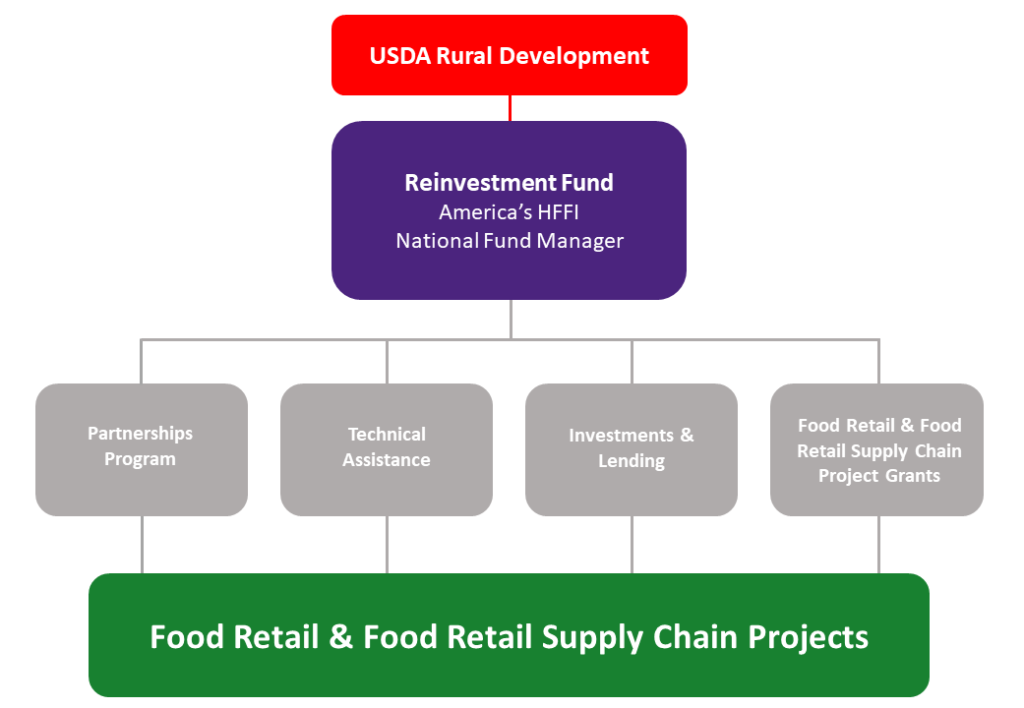America’s Healthy Food Financing Initiative (HFFI) was created to improve access to healthy foods in underserved areas, to create and preserve quality jobs, and to revitalize low-income communities.
America’s HFFI is a public-private partnership administered by Reinvestment Fund on behalf of USDA Rural Development. America’s HFFI was established by the 2014 Farm Bill and reauthorized in 2018.
HFFI offers resources such as grants, loans, technical assistance services, programming, and other forms of support to projects that will improve access to fresh, healthy foods in underserved rural and urban areas. HFFI supports the capacity of local and regional Healthy Food Financing Partnerships to invest national funds to support local and regional needs.
As the National Fund Manager for HFFI, Reinvestment Fund is responsible for leveraging private capital, establishing financing and technical assistance programs, and channeling capital to fund eligible projects and partnerships. Currently, Reinvestment Fund offers a targeted small grants program and technical assistance program through America’s HFFI.

Other federal Healthy Food Financing Initiative programs have also been funded by the U.S. Department of the Treasury and U.S. Department of Health and Human Services since 2010. To date, HFFI programs at the federal, state and local levels have helped leverage more than $320 million in grants and an estimated $1 billion in additional financing. They have also supported nearly 1,000 grocery and other healthy food retail projects in more than 48 states across the country, revitalizing economies, creating jobs, and improving access to healthy food.
America’s Healthy Food Financing Intiative is the result of a national effort by PolicyLink, Reinvestment Fund and The Food Trust to raise awareness on the issue of limited food access in many communities across America. Beginning in 2009, these three organizations worked closely to educate policymakers and other stakeholders on the need to improve access to healthy food in low-income, underserved, rural, suburban and urban communities.